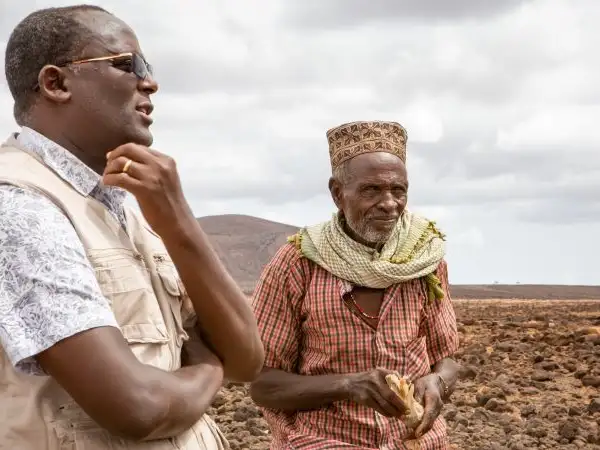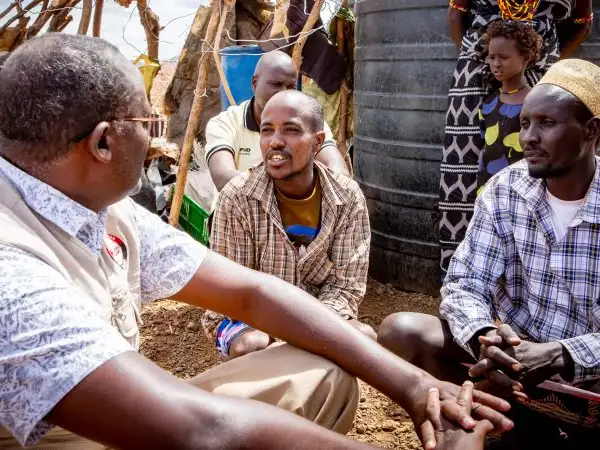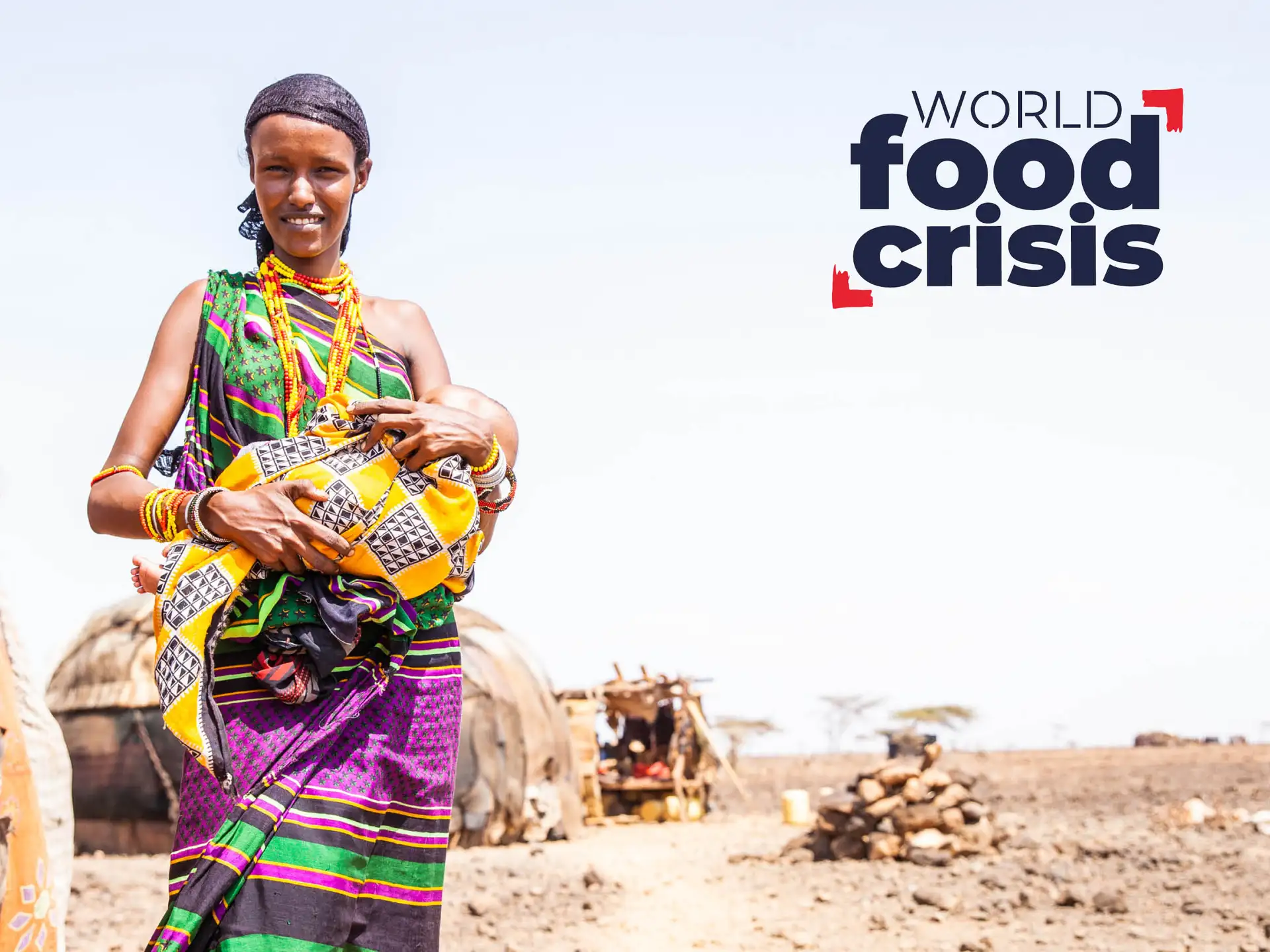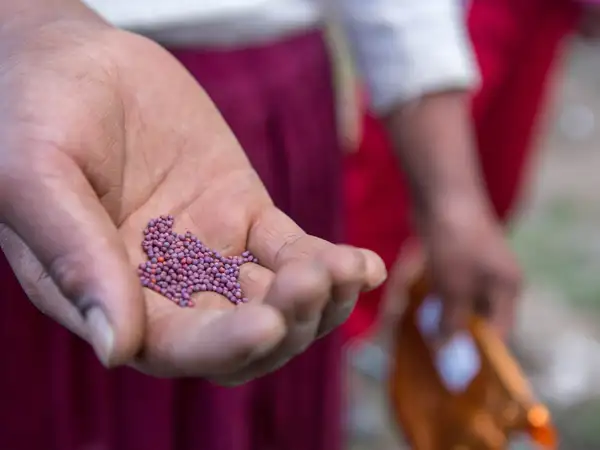Millions of families are facing a food crisis that could be worse than any we’ve lived through.


Together, we can reach out with love to help our sisters and brothers around the world who are facing extreme hunger through no fault of their own.
Right now, millions of families around the world are facing a food crisis that could be worse than any we’ve ever lived through. An increase of devastating climate catastrophes, the Covid-19 pandemic, as well as rising food and fuel costs caused by the conflict in Ukraine, have intensified underlying inequalities.
It’s a lot to take in, so here are five simple facts to help you understand the world food crisis.
1. Extreme hunger is on the rise
Even before the pandemic struck, in 2019, close to 750 million people were exposed to severe levels of food insecurity. Now, exacerbated by the conflict in Ukraine, as many as 811 million people around the world are facing extreme hunger – that’s an increase of roughly 60 million people in just three years.
2. Children suffer the most
In 2020, around the world, 149 million children under five were affected by stunting (being too short for their age) and 45 million children were affected by wasting (being too thin for their height) – conditions caused by malnutrition, untreated infections and inadequate mother-and-baby healthcare support.
3. Our global food system is broken
Big food companies are growing and sharing food in ways that harm the planet and make it hard for people around the world to have enough food to eat. Simply put, there’s enough food in the world to feed everyone but it isn’t shared equally. That’s why nearly 10 per cent of the world’s population go hungry.
We need resources to reach out to these communities to save their lives
4. Families across East Africa are preparing to face the worst drought in over 40 years
In Kenya, Ethiopia, Somalia and South Sudan, up to 20 million people are fighting for their very survival.
Isacko Jirma, an aid expert who lives and works in Marsabit, Kenya, told us: “We need more support to bring water and food to these communities that are really suffering. We need to feed these hungry people and quench their thirst. We need resources to reach out to these communities to save their lives.”


A local expert meeting people from a village in northern Kenya.
5. You can help put an end to the food crisis
Together, we can reach out with love to help our sisters and brothers around the world who are facing extreme hunger through no fault of their own.
With your support families can build resilience in the face of extreme hunger, with tools, training and climate-resistant seeds to help with sustainable farming, emergency food, water, shelter, and so much more.
Because no one is beyond the reach of the love they need to flourish.
Three ways you can help
This crisis is severe – and it is going to take commitment and dedication to help as many people affected as possible, and to keep supporting them as they recover and rebuild.
Pray for those affected by hunger
Please keep all the families affected by the food crisis – including those here at home who are finding it hard to keep up with the cost of living – in your prayers.
Take action and urge politicians to fix the food system
Political inaction is one of the key reasons emergencies like this keep happening. Please raise your voice to our government and demand they take action to provide urgent help and fix the food system for a world where no one struggles to get enough to eat.
Donate to our World Food Crisis Appeal
Your support today can help local experts stop this crisis turning into one of the worst humanitarian tragedies we’ve ever seen.
Please give what you can to provide urgent help now to families in East Africa, support communities around the world working hard to put food on the table, and help fight the causes of hunger longer term. Your donation will help to provide urgent help now to families in East Africa.
Pray with us for a fairer global food system where everyone has enough.
Catholics across England and Wales have sent messages urging the government to rethink our global food system.




